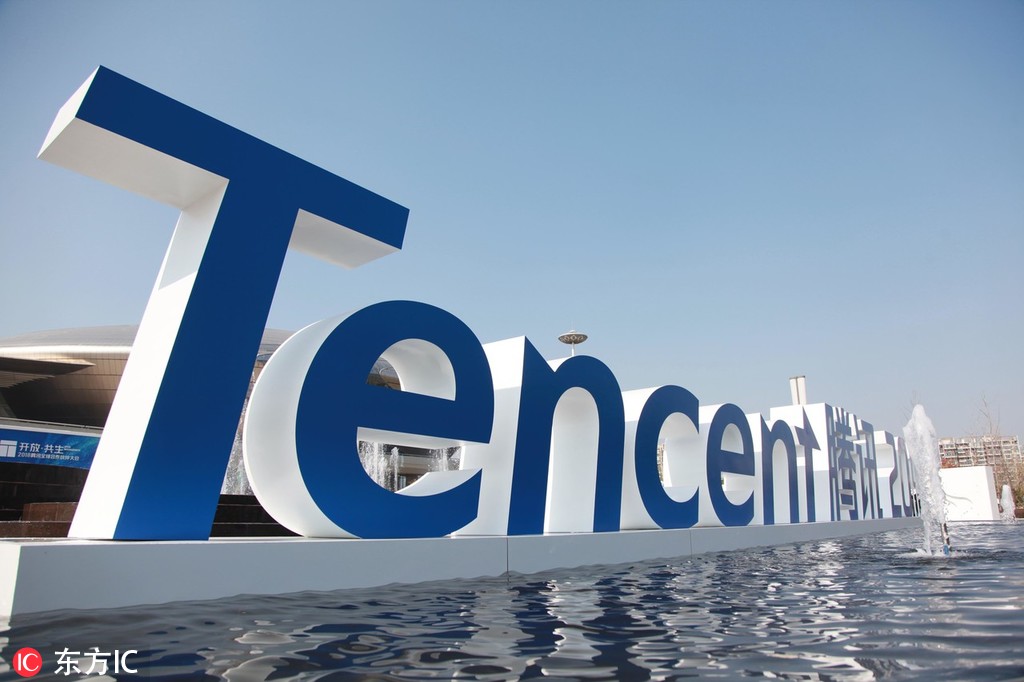Tencent, Roblox in strategic partnership


Internet giant Tencent Holdings Ltd said on Wednesday that it had teamed up with gaming company Roblox to set up a joint venture firm to foster the next generation of Chinese game developers and content creators by blending gaming and education.
Based in Shenzhen, the newly-established company is part of a strategic partnership between Tencent and California-headquartered Roblox to foster innovation among students and teachers who are pioneering Science, Technology, Engineering and Math (STEM) learning and education through interactive online experiences.
Such goals will initially be achieved by teaching users coding fundamentals, game design, digital citizenship and entrepreneurial skills, said Steven Ma, senior vice-president of Tencent.
"In the future, information acquisition through the internet will become the 'new norm'. It's therefore imperative that the future generation embrace such abilities as coding at an earlier age," Ma told China Daily in an interview.
"Tencent is the perfect partner for Roblox in China," Roblox founder and CEO Dave Baszucki said in a news release. "They have a deep understanding of the Chinese market and share our belief of the power of digital creation and our vision to bring the world together through play."
Under the tie-up, Roblox is primarily engaged in providing technologies while Tencent offers platforms and localization of the offerings, Ma said.
The pair will start by proffering both coding tools dedicated to Chinese youngsters and basic "tool kits" for teachers to customize their curriculum through digital means. Tencent is planning to partner with educational institutions and individual teachers to pilot such usage.
Through Roblox's entertainment-educational programs, some 90 million global users, a large proportion being kids and teens, are learning STEM skills. Roblox has recently added support for Chinese language and made its coding curriculum available for free in Chinese.
Among the first steps of a multiyear partnership, the duo also announced a scholarship fund to sponsor 15 young creators from China to attend weeklong creator camps at Stanford University this summer.
Without setting a clear timeline, Ma is expecting the program, which is not profit-driven, to draw some 40 million to 50 million users, as part of the efforts to advance science, technology and innovation capabilities of Chinese nationals.
"With the advent of artificial intelligence, robotics and new telecommunication technologies, we will see an increasingly conspicuous role of STEM subjects in advancing the nation's overall strength," he said. "It is a competition for the most cutting-edge (technologies and talents)."
He also encouraged people to take a more "inclusive" attitude toward games, which is a new form of culture and entertainment borne out of information technology advancement. "It is essential that games should be designed to be more customized to teenagers so that they can learn by playing."
"We look forward to Roblox and Tencent's continued efforts to fuel the creativity of Chinese students through local programs," said Shang Junjie, who heads the education and gaming expert committee at the China Association for Educational Technology.
Coding is critical to training the mind and teaching logic especially in the AI age. With proper guidance and customized designs, Shang believed that gaming can better motivate students to learn on a voluntary basis and enhance efficiency.
The State Council, China's cabinet, released an artificial intelligence development plan in 2017, calling on primary and middle schools to promote coding education.
With a total of 782 million yuan ($116 million) raised, coding training companies attracted 44.4 percent of total education investment deals last year, according to the Blue Paper of Education 2018.
Computing coding is set to become an elementary subject and a basic technique for the next generation. Tencent is taking a first-mover strategy in this vast yet unsaturated market with massive commercial potential in the future, said Liu Wei, an analyst with market consultancy iResearch.
"Such a move is conducive in elevating Tencent's reputation. Besides, as a company claiming over 50 percent of China's gaming market, it has every reason to invest in functional games, a large focus of which is the combination of education and games," Liu said.



































